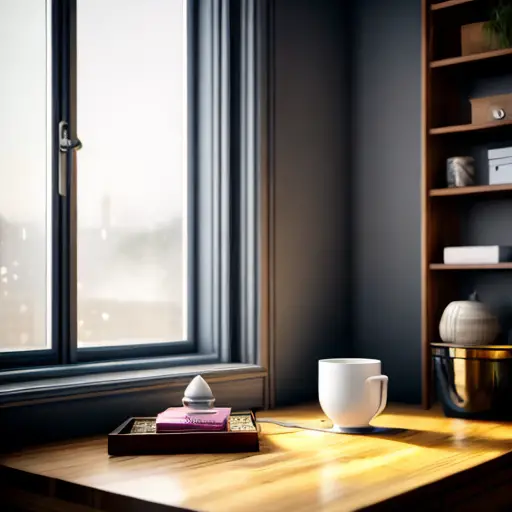Picture this: you're desperately searching for your car keys amidst a mountain of papers, old magazines, and random knick-knacks that have taken over your living room. As frustration builds, you can't help but wonder if this chaotic mess is secretly plotting against your sanity. Well, my fellow clutter enthusiasts, I'm here to unveil the hidden impact of clutter on our mental well-being. It turns out that living in a perpetual state of disarray can have a sneaky way of messing with our minds. From increased stress levels to reduced focus and productivity, clutter has a knack for turning our brains into a tangled mess. So, next time you find yourself buried under a pile of stuff, remember that decluttering isn't just about tidying up your physical space; it's about giving your mind the breathing room it desperately craves.
An interesting fact about how clutter affects mental health is that studies have shown a direct correlation between clutter and increased levels of stress and anxiety. Living in a cluttered environment can overwhelm the senses, making it difficult for individuals to relax and focus. The constant visual reminders of unfinished tasks or disorganization can also lead to feelings of guilt, shame, and a sense of being overwhelmed. On the other hand, decluttering and organizing one's surroundings have been found to have a positive impact on mental well-being, reducing stress levels and promoting a sense of calm and control.
Imagine trying to solve a complex puzzle while surrounded by a maze of clutter. Your brain feels overwhelmed, your thoughts become scattered, and frustration sets in. This is the psychological toll of clutter, my friends. Beyond the physical chaos, clutter has a profound impact on our cognitive functioning and emotional well-being. Studies have shown that a cluttered environment can impair our ability to focus, make decisions, and process information effectively. It can also contribute to feelings of anxiety, overwhelm, and even depression. So, if you find yourself drowning in a sea of stuff, it's time to recognize the toll it's taking on your mental health and take action to declutter your space and reclaim your peace of mind.

In the battle against clutter, it's not just our physical space that suffers; our mental health takes a hit too. The relationship between clutter and stress is a complex one, but the evidence is clear: disorder in our environment can lead to significant mental strain. When our surroundings are filled with piles of clothes, stacks of papers, and a general sense of chaos, it becomes difficult for our brains to relax and find peace. The constant visual reminder of unfinished tasks and disorganization can create a constant undercurrent of stress, making it harder to unwind and recharge.
But it's not just the visual clutter that affects us. The physical clutter in our homes often reflects a deeper emotional clutter within ourselves. Holding onto unnecessary possessions can be a manifestation of unresolved emotions or a fear of letting go. This emotional clutter can weigh heavily on our minds, contributing to feelings of overwhelm, anxiety, and even depression. It's as if our cluttered spaces become a mirror for our cluttered minds, amplifying the mental strain we experience.
Moreover, clutter can also impact our ability to focus and concentrate. A cluttered environment bombards our senses with excessive stimuli, making it harder for our brains to filter out distractions and stay on task. This constant sensory overload can lead to decreased productivity, increased frustration, and a sense of being overwhelmed. Our mental energy becomes drained as we struggle to navigate through the clutter, leaving us feeling mentally exhausted and depleted.
To break free from the cycle of clutter-induced stress, it's important to recognize the impact it has on our mental well-being. Taking small steps towards decluttering our physical spaces can have a profound effect on our mental health. As we clear away the physical clutter, we create space for our minds to breathe and find calm. So, let's embrace the power of decluttering and give ourselves the gift of a clutter-free, stress-free sanctuary.
Fun fact: Did you know that clutter can actually have a negative impact on your mental health? Studies have shown that living in a cluttered environment can lead to increased stress levels, decreased focus and productivity, and even contribute to feelings of anxiety and depression. So, next time you're tidying up, remember that you're not just organizing your physical space, but also promoting a healthier mind!
In the quest for mental clarity, decluttering emerges as a powerful tool to improve our overall mental health. The impact of clutter on our minds is undeniable, as it creates a constant source of visual and mental distraction. By implementing organizational practices, we can regain control over our physical spaces and, in turn, our mental well-being. Whether it's setting aside dedicated time for decluttering, creating designated storage solutions, or adopting a minimalist mindset, these strategies can help us create a harmonious environment that promotes mental clarity and reduces stress. So, let's embrace the transformative power of decluttering and pave the way for a more peaceful and focused mind.